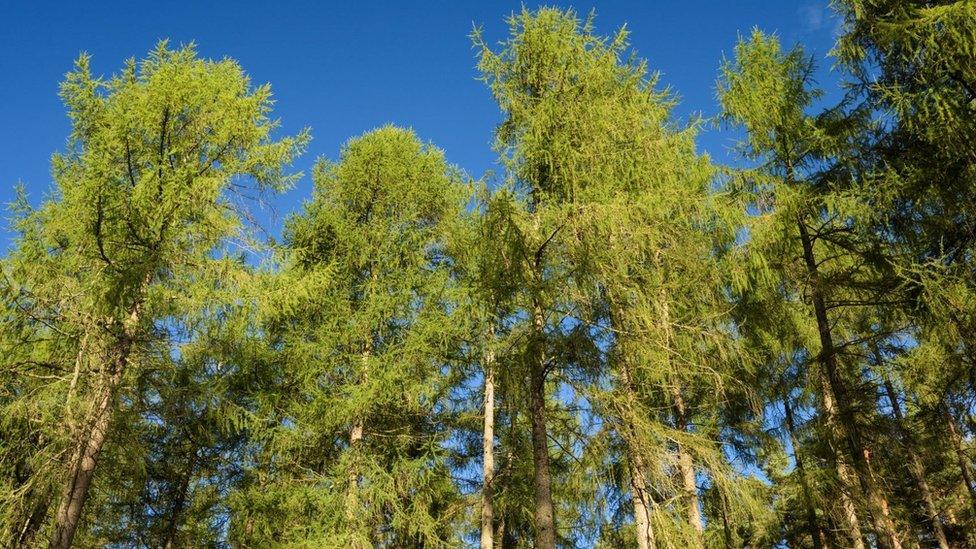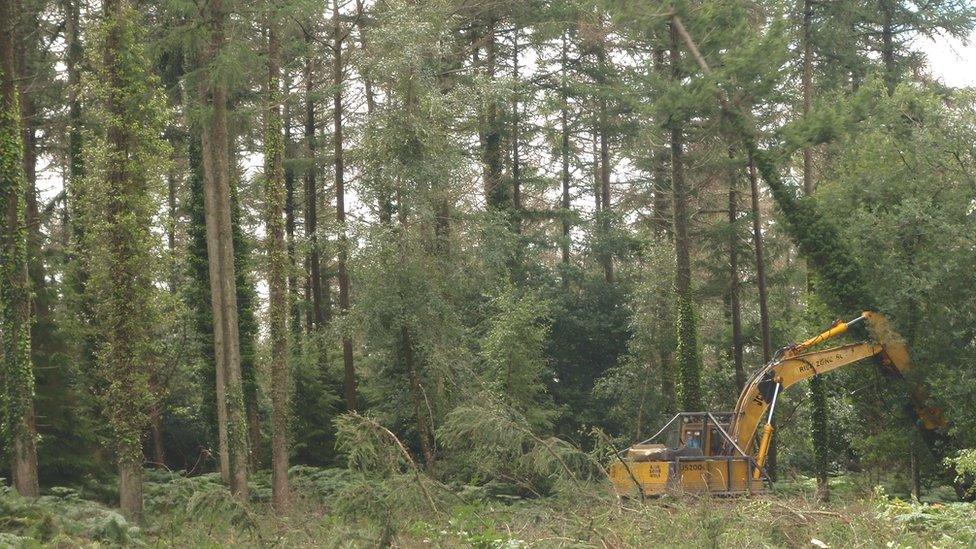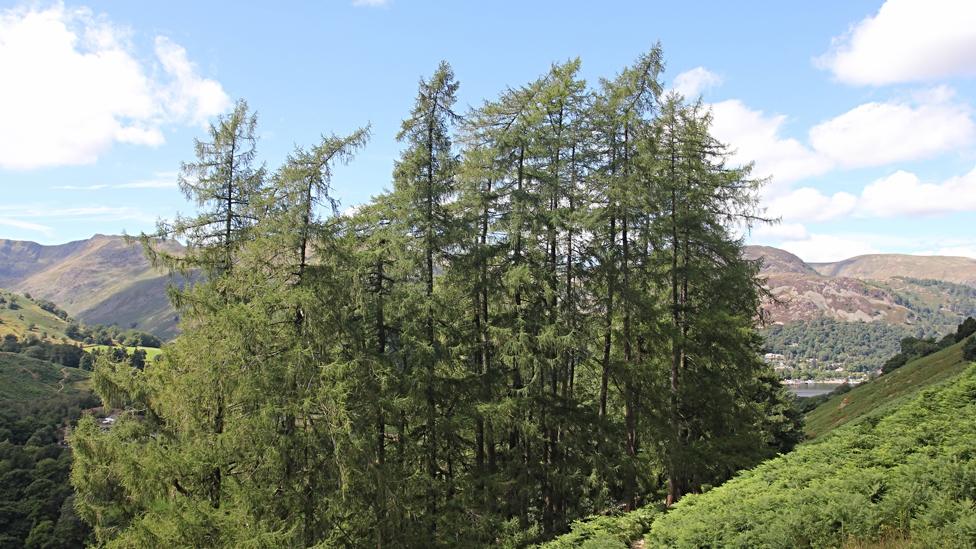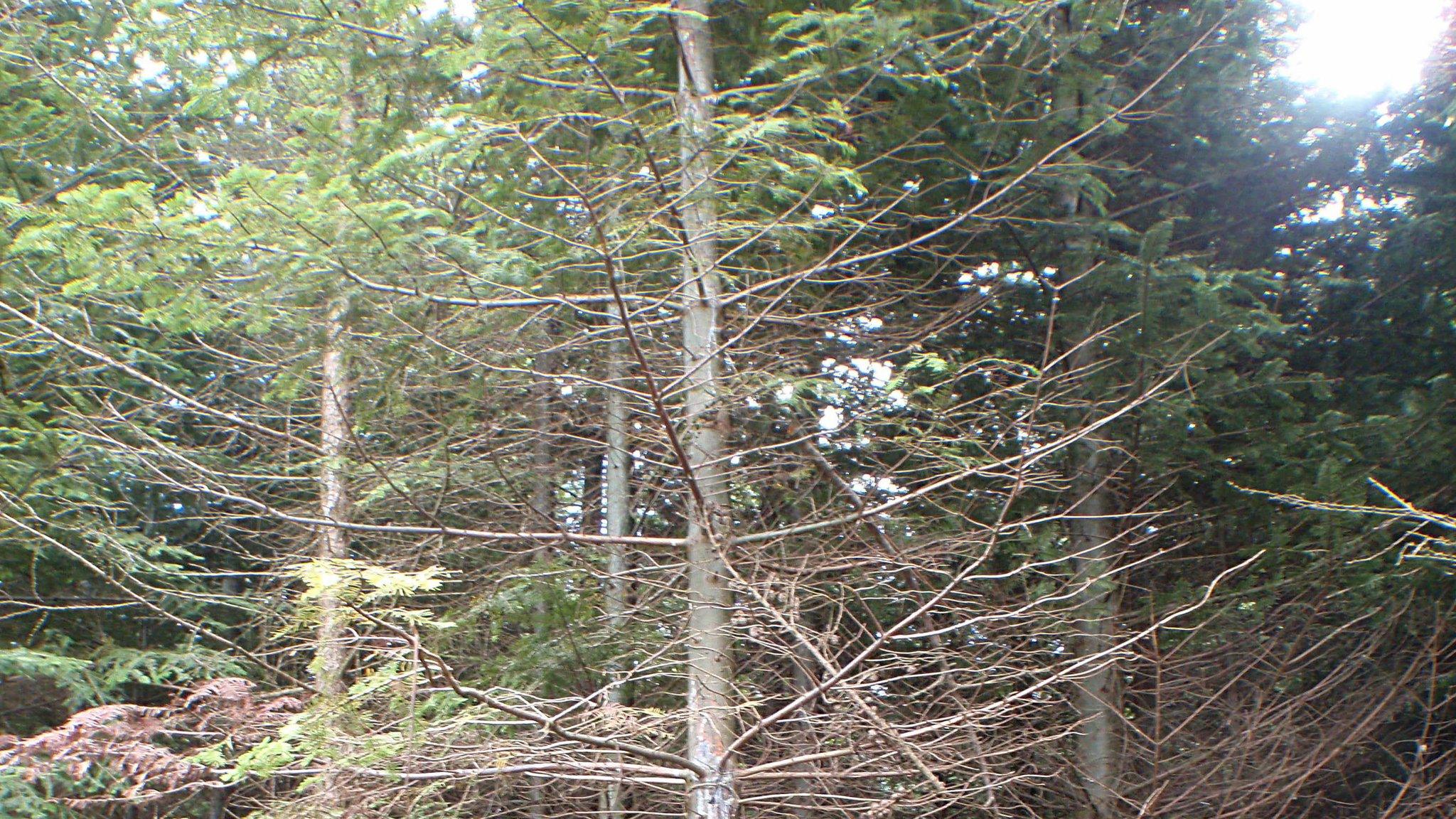All larch trees to be felled in southern Scotland forests
- Published

All larch trees will be removed from FLS land in south west Scotland by 2032
All larch trees in forests in south-west Scotland will be cut down in an effort to halt a killer disease.
Forestry and Land Scotland (FLS) said it aimed to slow the spread by creating breaks in the pathogen's path, and it would fell all larches by 2032.
Phytophthora ramorum was found in Scotland in 2010 with millions of trees already felled. Other species will be planted to replace them.
FLS said it was trying to save the larch in other parts of the country.
It has estimated that it is a little more than half way through a programme which will see more than 10 million trees felled in total.
Graeme Prest, FLS director of land management and regions, said that with no known cure and eradication of the disease considered unachievable, felling was the only option.
He said: "Previously, we have been waiting until the disease arrives at a location and then have responded to the statutory plant health notice that requires us to fell infected and 'at-risk' trees in the vicinity by a set date.
"This new approach allows us to get more on the front foot and build disease management into our annual felling programmes, making the effort to tackle the disease more cost efficient, manageable and sustainable."

Felling operations are being stepped up to try to safeguard a future for the tree in Scotland
The disease risk is believed to be greatest in western Scotland and steadily diminishes towards the east.
Mr Prest added: "We are adopting this new approach proportionately with those risk zones so that all of our teams can better manage their contribution to giving larch in Scotland more of a fighting chance of surviving.
"We will plant a variety of species to replace the larch that are felled to minimise as much as we can the impact of their loss in the landscape.
"It is all part of the process of adapting the forests to be more resilient for the increasing threats from pests and diseases and climate change."
FLS hope it can ensure a long-term future for the larch in northern and eastern parts of Scotland.
- Published29 May 2019

- Published15 June 2018

- Published8 December 2010